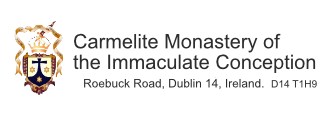17th Sunday in Ordinary Time 2025
Genesis 1820-32 Colossians 2:12-14 Luke 111-13
The Gospel reading of last Sunday’s liturgy described the visit of the Lord to the home of Martha and Mary. The lesson from that event, on the journey of Jesus and his disciples, was the importance of both prayer and service in the life of a disciple of Jesus.
In today’s Gospel the disciples, like the disciples of any religious master of the time, ask Jesus to teach them how to pray. They had come to a new understanding of what God is like through their association with Jesus, watching him and listening to him. Surely they had noticed that at all the important moments of his life he went aside from activity and spent time with the Father. So, he is praying at his baptism (Lk 3:21); before the choice of the apostles he prays through the night (Lk 6:12); at the Transfiguration he is praying (Lk 9:29).What we notice and what is the central revelation of the Gospels is that God is ‘Father’. The Father is one who is close to his children, one whom they could call ‘Abba’.
Uniquely, St Luke presents the prayer, which Jesus taught, by simply addressing God as ‘Father’. Other ancient authorities use ‘Our Father, who art in heaven’. The formality of our prayer, the ‘Our Father’, can be helpful to us in focusing on our relationship with God but the words are not always necessary. St Augustine explains that we only use words so that we may remind ourselves to think carefully what we are praying and not to instruct or prevail on God. In fact, St Augustine would say that the entire prayer is reminder to ourselves that ‘we should hold God’s name as Holy’, that ‘we should desire that God’s Kingdom will come and that God’s will be done’. We also make ourselves aware of the fact that everything we need is given to us without our asking.
Jesus includes the concept of forgiveness in this prayer. This was something new for the people of the time. The Jews regarded what we call sins as merely debts that we owed to God. Certainly, forgiving others was something that they didn’t consider at all. Forgiveness would be something positive beneficial to the Christian community and so, we need to remind ourselves.
Finally, St Augustine reminds us that everything we need to pray about is contained in the ‘Lord’s Prayer’ provided we pray only in the Spirit. St Paul tells us that even when we don’t have the words, the Holy Spirit prays for us (Rom 8:26-27).
Throughout the Gospel of St Luke there are parables and images which underline the importance of persistent prayer after the example of Jesus himself. Indeed prayer takes on many forms and it doesn’t always involve words. The Psalms had always been the prayer formula which Jesus and disciples used and they illustrate for us that Prayer is, first and foremost, giving Praise and Thanks to God.
To get back to the ‘Our Father’: Saint Teresa of Avila was once asked by one of the sisters what she should do about contemplative prayer. Her reply was ‘Say the Our Father … and spend an hour at it’.
On the day I called, you answered me O Lord
